If there’s one person you’d want in your corner, it’s Lynsey Lockey.
A force to be reckoned with in women’s boxing, she’s a fighter in every metaphorical way. She’s fought gender bias and injustice, battled melanoma, depression and personal loss, and combatted the struggle of being a busy working mum to three girls.
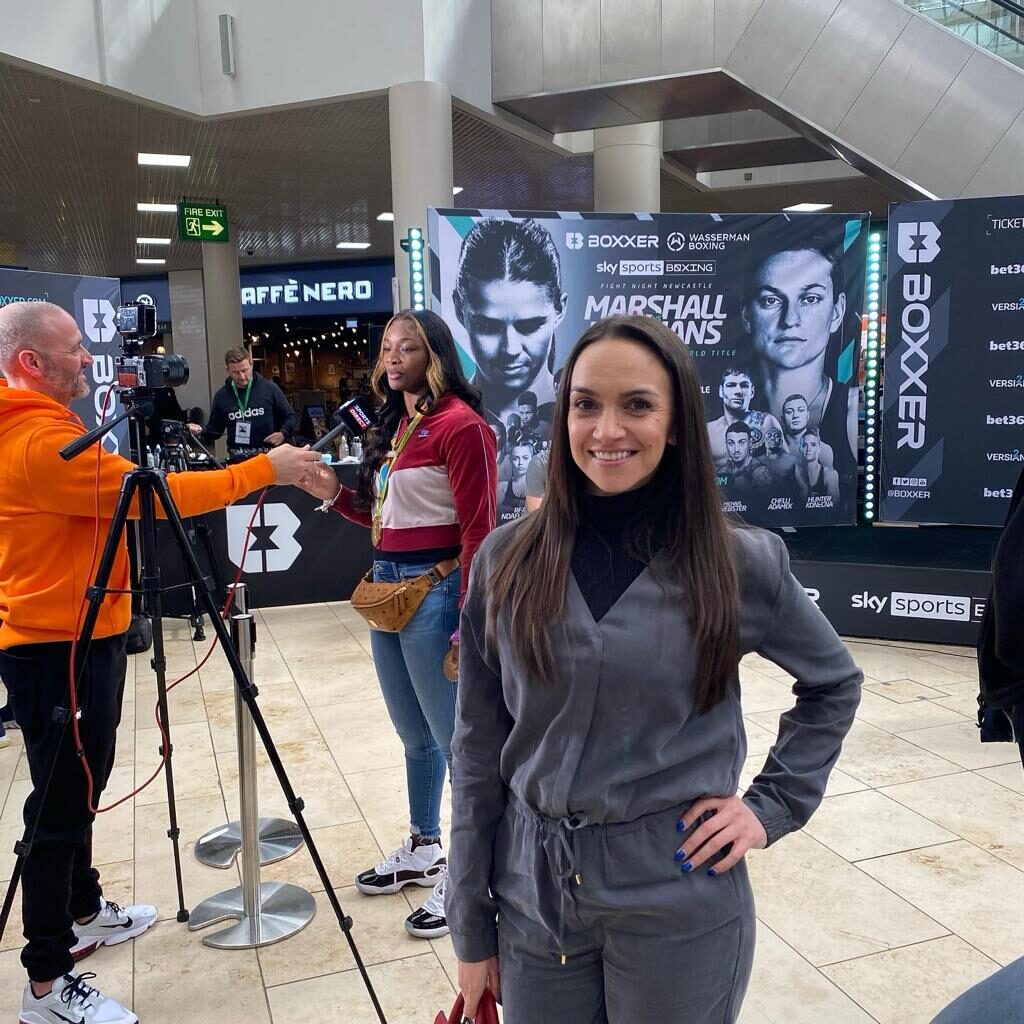
She’s stood toe to toe with some of the sport’s biggest names outside the ring over the last 20-odd years. One of only a few female boxing promoters in Britain, she’s had to work ten times harder than her male counterparts to prove herself worthy of being there.
She’s never thrown a punch. But she’s also never thrown in the towel. She’s a warrior who keeps going, keeps fighting for the rights and representation of women in boxing.
And now she’s launched her own not-for-profit organisation to ensure that future generations of women don’t have to fight as hard to be seen and heard.
This dogged determination started in childhood, spurred on by being from a working-class background. She grew up on the Woodthorpe estate near Intake in Sheffield with her mum and siblings.
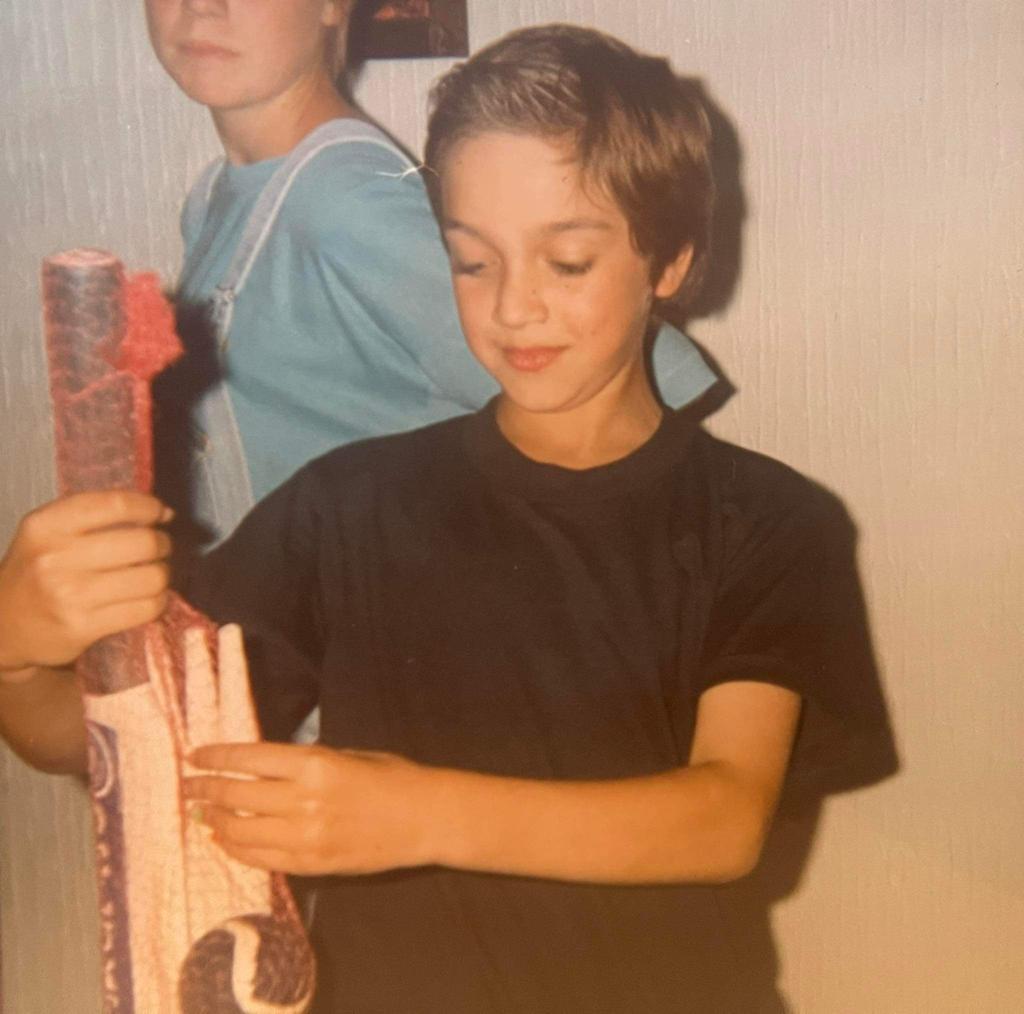
Her dad was from Kashmir and had restaurants in the city, while her mum worked on the Caribbean stall in Castle Market. For many years, Lynsey was the only mixed-race child in her class.
“That had its challenges, but it also made me work harder to achieve. I was always top of the class academically, got picked for every sport team, and was usually captain. I’d like to say it was down to leadership skills, but my brother would say it’s because I’ve got a big mouth,” she jokes.
There was only an 11-month age gap between Lynsey and her younger brother, and she says that even as youngsters the gender inequality started to show.
“We were both really sporty as kids, both good swimmers and runners. But he always had opportunities that I didn’t because he was a boy. At primary school, girls weren’t allowed to play football, but I was having none of that.
“When I was about ten, I started a girls’ team. We had enough players for a five-a-side team, but I approached girls from other schools until we had a full team of 11. Then I designed our kit, went to companies for sponsorship and got it paid for.”
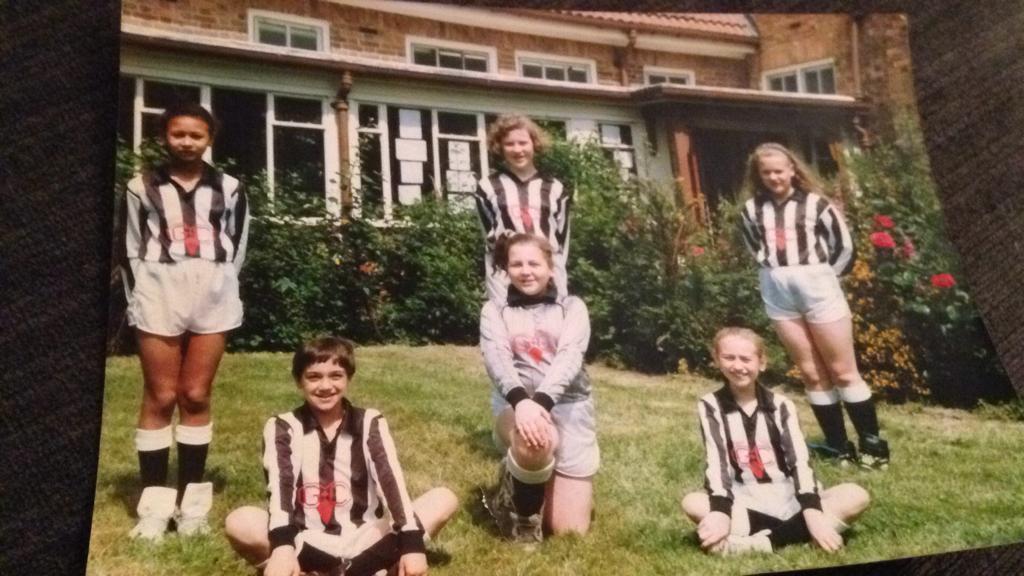
Lynsey moved on to the former City School where, again, there was no girls’ football. But she played other sports like netball, cross country and was a cheerleader for Sheffield Hatters.
But it was after she left school, aged 17, that she got into boxing having been to the discipline and empowerment of the sport. But at that time, in the late 1990s, it wasn’t heard of for women to set foot in a boxing gym. Lynsey wanted to change that.
She set up a female-only class in the downstairs of her local boxing gym. But with all the equipment being used upstairs by the men, it became more of a fitness class with shadow boxing and circuits.
“I’ve never sparred or fought as it wasn’t an option for me. But being in sport was. I always joke that I’d have been a rubbish boxer anyway as I shut my eyes if someone throws their keys at me. But I don’t know how good I’d have been as I didn’t have the chance to try.”
By the time women were accepted in boxing gyms, Lynsey had a young family to think about. She had her first two daughters at 18 and 20 but kept going back to boxing in between.
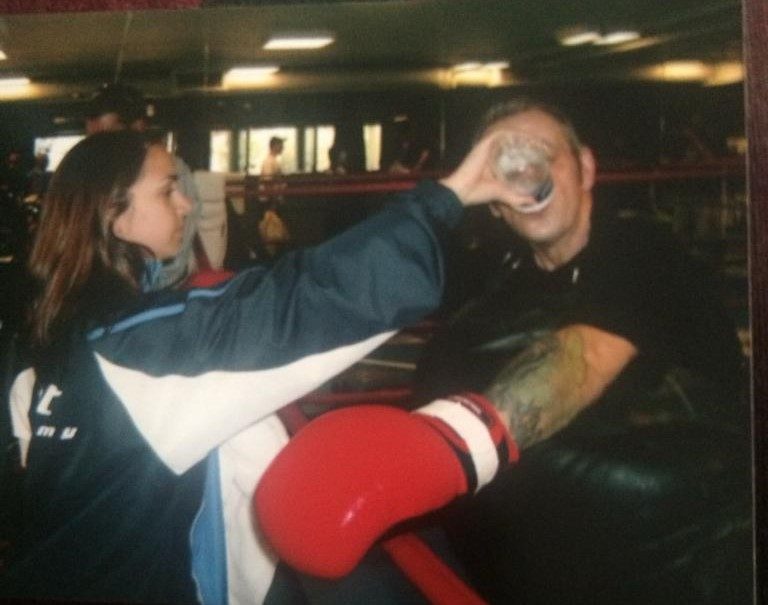
Lynsey went into the business side of boxing in 2003 aged 23 after realising that nobody else was providing other staff needed to host a boxing match such as ticketing, hospitality or ringside staff. She set up her own promotional business and juggled that alongside two other jobs – a personal trainer and nightclub promoter – all while raising two young children.
“When I became a mum, I wanted a different life. As kids, we had free school meals and had to scrape together a pound to go to youth club on a Friday night. I wanted my girls to see me achieving things as a woman.
“I tried to get all my work done at the weekend while the kids were with their dad so it didn’t take away from time spent with them. Some weekends, I’d finish a shift at the hotel gym where I worked at 8pm, go into town for my second job as a nightclub promoter until 2am, and then have to be back in the gym at 6am.”
She was then headhunted to work for International Sports Management (ISM), an agency owned by former golfer Andrew ‘Chubby’ Chandler. They represented many top golfers such as Ernie Els, Rory McIlroy, and Darren Clarke. ISM also branched into cricket, with people like Michael Vaughn and Andrew ‘Freddie’ Flintoff on their books.
When they opened a football division, Lynsey became personal assistant to the football director.
Over time, she worked her way up through events management, with a primary focus on boxing. Lynsey was responsible for booking flights and hotels, organising medicals and eye tests, sorting sponsorship and commercial deals, getting the kits and ring canvas printed with the right logos in the right place, and organising pre-fight press conferences.
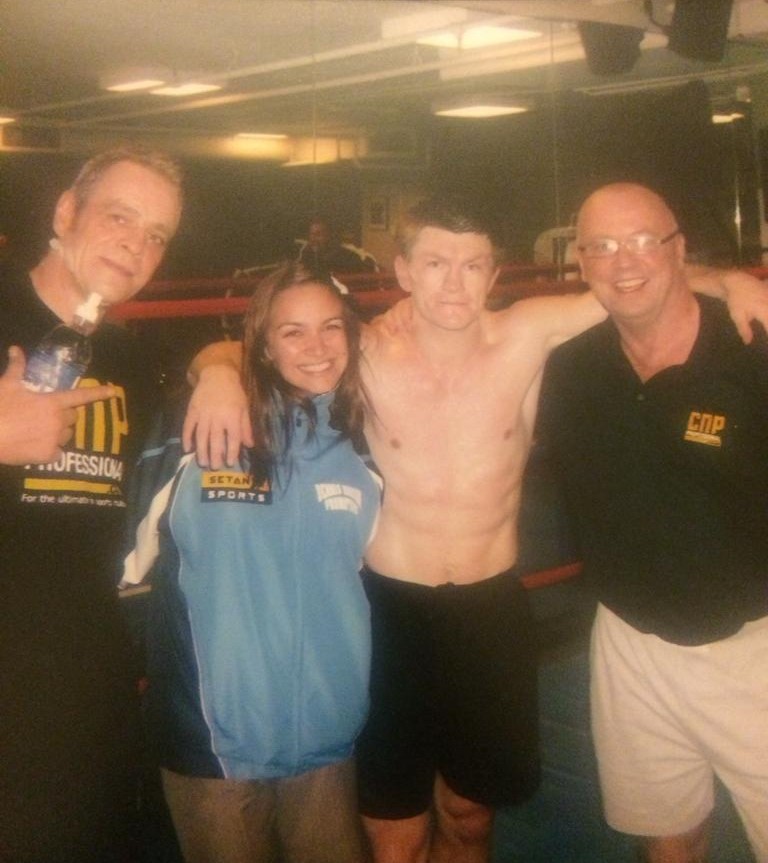
Often the only woman in a very male dominated sport, Lynsey says she did more work than the men but her input was usually disregarded.
“I remember this one time we were in Vegas with Ricky Hatton when he did his series of fights in 2007 against people like Mayweather and Castillo. Ricky had a medical at Caeser’s Palace and I was asked to go with him. We went to this huge boardroom with the biggest table I’d ever seen. It was full of old, white men and there was me, a mixed-race woman in her mid-20s. They thought I was bringing them coffee.
“We had to introduce ourselves and I said I was Lynsey Lockey representing IBF champion Ricky Hatton. Their jaws fell through the floor. After that they all wanted to know me.”
After a short spell in football working in youth development at Rotherham United FC, Lynsey joined the country’s boxing governing body, England Boxing, as national competitions and events manager.
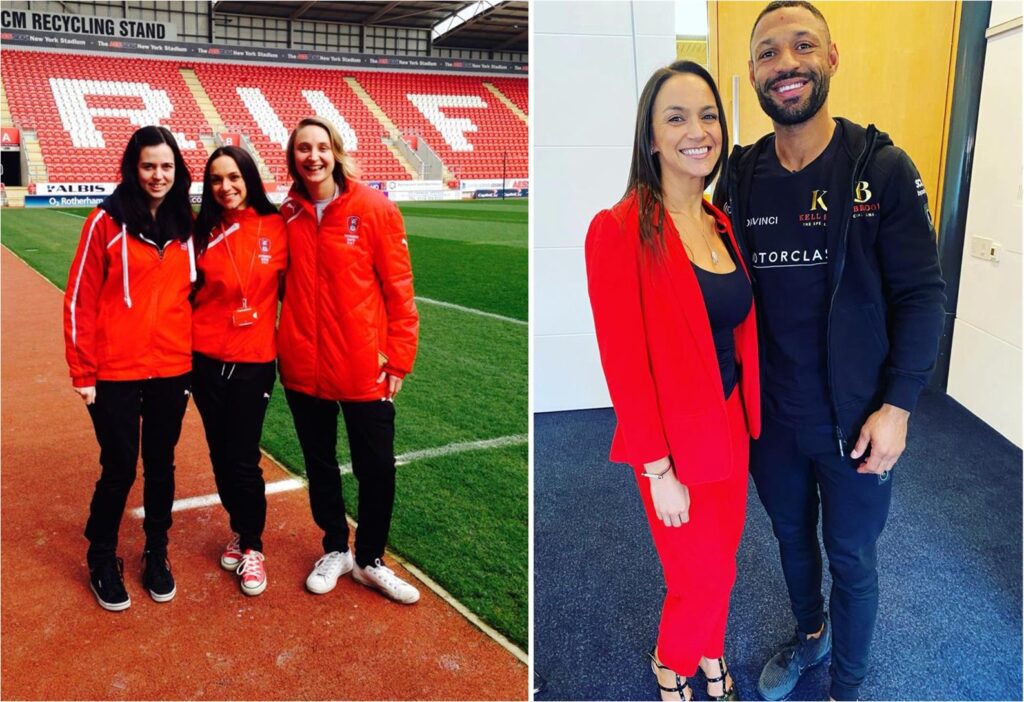
In 2018, she organised the first ever Women’s Winter Box Cup, an all-female event which saw 160 boxers from 11 countries take part in the competition that was broadcast worldwide. The event is now a regular fixture on the boxing calendar.
After four years with England Boxing, Lynsey left last January to set up her own business, Steel Sports Management, and pursue her passion of fighting for equality in boxing.
The sport has changed slightly in recent years, fuelled by the emergence of professional women boxers. It wasn’t until London 2012 that women’s boxing was included in the Olympics. But there still aren’t enough women in the sport generally.
In October, she launched Women in Boxing to create a better pathway for women.
“When you look around at a boxing event, do you see many female coaches, referees, journalists or security? When I started in boxing, there was no professional route for female fighters. While ever there’s a gap between any groups, I’ll shout about the one that needs raising.
“I always say I’m pro-female, not anti-men. There are lots of male clients that I’ve supported over the years and we have men on the board and as ambassadors for Women in Boxing. We need men to support us.”
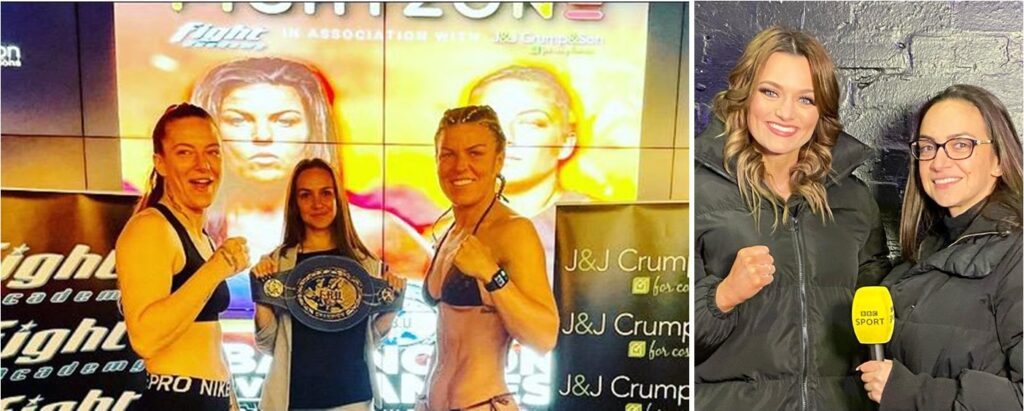
They use the hashtag #InHerCorner, but it’s so much more than that. They want to knock down any barriers that prevent women from reaching their potential.
The aim of Women in Boxing is to invest in the sport and highlight areas where opportunities for women are sparse. Lynsey’s initial plans are to fund female-only courses in things like hand wrapping and weight cutting so that women have the tools of the trade to become a cornerwoman.
She’d also like to be able to offer an officials pathway course to see more women becoming judges or referees.
Another focus is to look at the impact that things like periods and menopause have on boxers.
There’ll be workshops, mentoring programmes, and a supportive network where women can find motivation, support, and camaraderie.
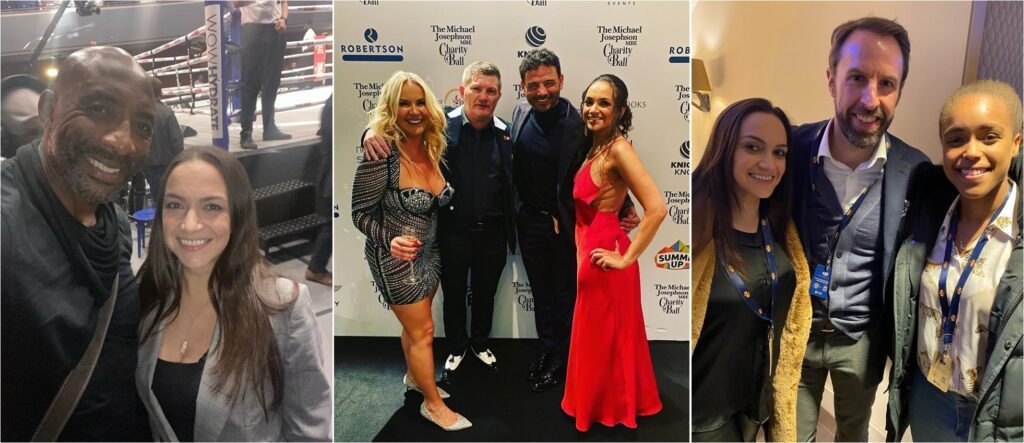
Lynsey has already got some heavy hitters involved in Women in Boxing such as Jane Crouch, the first licensed female boxer. Many other ambassadors have also been ‘firsts’ in the sport: champion fighter Natasha Jonas who is the first black female boxing manager; Safiyyah Syeed, the first female boxer to wear a hijab in the ring; and silver medallist Stacey Copeland, the first female boxer to win a Commonwealth title.
As Lynsey said, there are also many men signed up as ambassadors, including her old pal Ricky Hatton, as well as Sheffield’s Johnny Nelson and boxing journalist Gareth A Davis.
She’s also joined by a team of trustees with prominent people from outside the ring, including World Boxing Council stalwart Geraldine Davies, army GP Dr Sarah Conway, and Matchroom’s Matty Lawless.
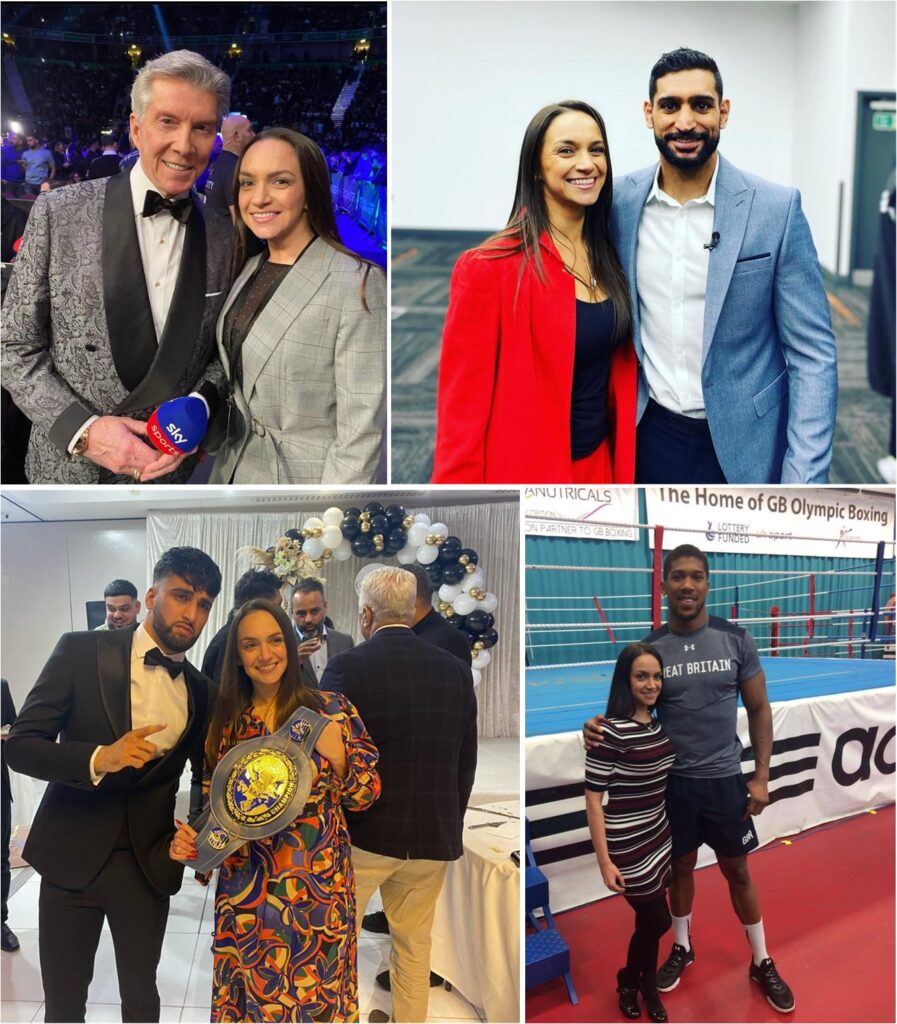
Having spent almost half her life in the sporting industry, her photo album is like a who’s who of world greats.
But these contacts and the skillset she’s developed has also seen her become the perfect fit to join the team of trustees at Sheffield Home of Football. Earlier this year, Lynsey was asked by her former teacher, John Stocks, to get involved in the project. As a proud Sheffielder and a life-long Blade, was more than happy to throw her hat in the ring.
In what little spare time she has, Lynsey, now 44, she spends her weekends following Sheffield United with her youngest daughter, 12-year-old Yasmine.
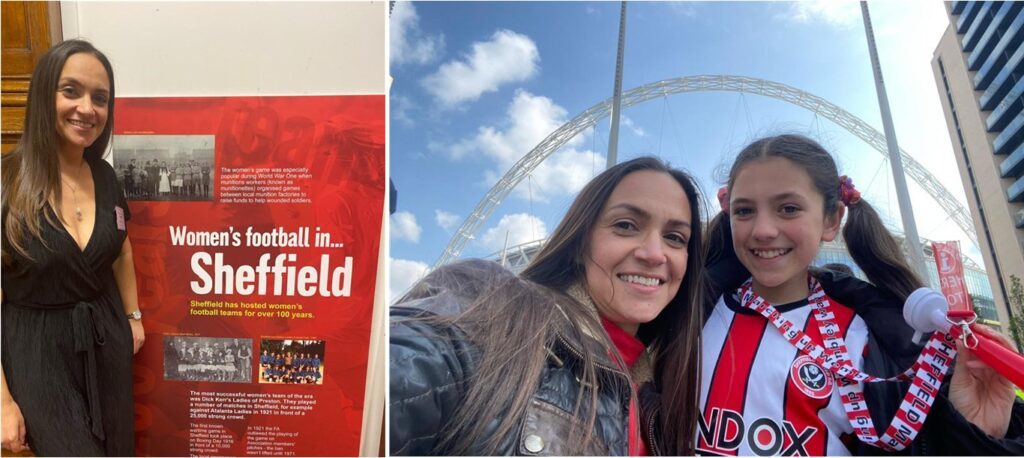
Her two older daughters, Brooke and Dharby, are now both in their early 20s and have definitely inherited their mum’s work ethic. Dharby is working in wedding and events management, while Brooke owns an accounting firm.
She’s a woman with a voice, a champion for others, and 2024 will be the year that the world starts to listen to Lynsey Lockey.






